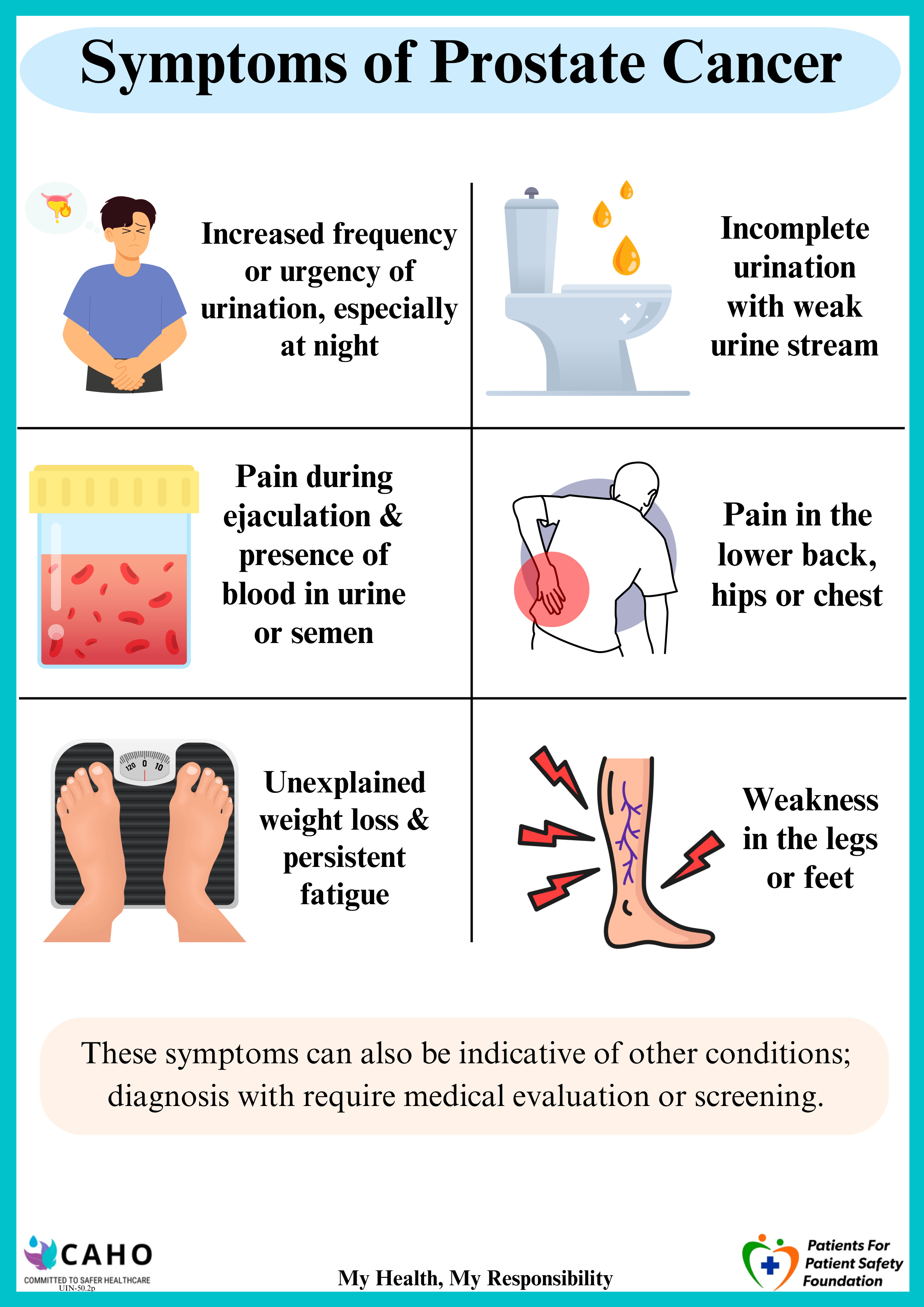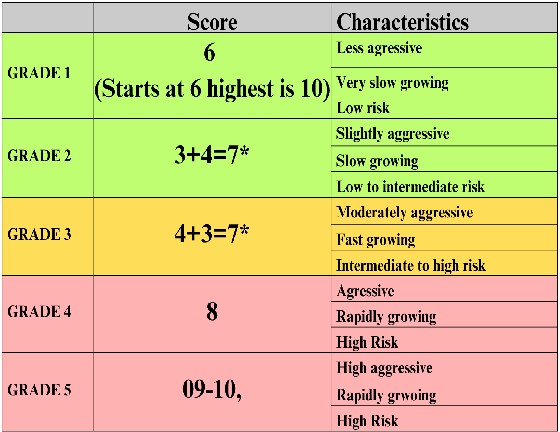
Prostate Cancer - What is it and Why is it important
What is it and why is it important?
Prostate cancer patients make up about 15% of all male cancer patients worldwide, with an estimated 1.5 million new cases and nearly 400,000 deaths each year. Prostate cancer stands as the second most common malignancy in men worldwide and the fifth leading cause of cancer-related death among men. It is also one of the six most common cancers in India. Prostate cancer is a type of cancer that begins in the walnut-shaped prostate gland, which is part of the male reproductive system and surrounds the urethra. The prostate gland is located just below the bladder. This cancer occurs when cells in the prostate begin to grow uncontrollably.
Prostate cancer is different from many other cancers because it often progresses very slowly and may not cause serious health problems for years. However, some forms can be aggressive and spread quickly to other parts of the body. If detected early, when it is still confined to the prostate gland, the chances of successful treatment are high.
What are the symptoms of Prostate cancer?
In its early stages, prostate cancer often presents no symptoms. However, as it progresses, symptoms may include:

What are the risk factors for Prostate Cancer?
Prostate cancer can develop in anyone, but the following factors can increase the likelihood of developing prostate cancer:
- Age: Risk increases significantly after age 50 and accelerates after 64. However, men in their 40s and 50s can also be affected.
- Family history of prostate, colon or breast cancer.
- Toxins, pesticides and certain chemical exposures
- Underlying chronic infections or prostatitis
- There is a likely linkage to smoking, obesity and sexually transmitted diseases.
What are the complications that can arise due to Prostate Cancer?
If left untreated, prostate cancer can lead to severe complications:
- The cancer can spread to bones or lymph nodes, and bone metastases can lead to pain and paralysis of the lower limbs when at advanced stages.
- It can cause significant urinary obstruction or incontinence.
- Treatment and progression of the disease may impair sexual function, leading to erectile dysfunction and affecting overall quality of life.
How is Prostate Cancer diagnosed?
Doctors use a combination of tests to detect prostate cancer and assess its severity to determine the best course of action. Common tests include:
- Prostate-Specific Antigen (PSA) Blood Test: This test checks PSA levels in your blood. High levels might suggest prostate cancer but can also be caused by other conditions.
- Digital Rectal Examination: In this, a physical examination of the rectum is done to identify any lumps or hard areas.
- Imaging Tests: Ultrasound or MRI scans are used to create detailed images.
- A biopsy may be done to confirm the diagnosis.
What does one do if one gets a positive diagnosis:
Prostate cancer is graded in Gleason scores- Gleason 6 is low grade, Gleason 7 is medium grade, and 8, 9 and 10 are high-grade cancers. Patients with 6 and 7 qualify for the active surveillance protocol, which warrants periodic prostate- specific antigen (PSA) blood tests, annual MRI scans and biopsies. Any sign of disease progression means the surveillance protocol is suspended.
How the Gleason Score Works:

How is Prostate Cancer treated?
Doctors determine the best treatment for prostate cancer based on factors such as the cancer's stage, aggressiveness, overall health of the patient, and personal preferences. Cancer treatment, if advised, must start without delay and without interruption. Treatment may include:
- Active surveillance & watchful waiting: For slow-growing prostate cancer, regular monitoring with PSA tests, digital rectal exams and biopsies may be recommended instead of immediate treatment. This is suitable for older patients or those with low-risk cancer.
- Surgery (Prostatectomy): A radical prostatectomy involves removing the prostate gland, sometimes along with nearby tissues. It is often used for localised cancer and can be done through open, laparoscopic or robotic-assisted surgery.
- Radiation therapy: High-energy radiation destroys cancer cells. It can be delivered externally (external beam radiation) or internally through implanted radioactive seeds (brachytherapy). This may be used alone or combined with other treatments.
- Chemotherapy: Used for advanced or aggressive prostate cancer, chemotherapy involves drugs that kill or slow cancer cell growth, especially when hormone therapy is no longer effective.
- Targeted therapy & immunotherapy: Targeted drugs attack specific genetic changes in cancer cells, while immunotherapy boosts the body’s natural defences to fight cancer.
- Hormone therapy: Blocks cancer cells from getting the hormones they need to grow. It may include taking medicines or having surgery to remove the testicles.
How can we prevent Prostate Cancer?
While there is no guaranteed way to prevent prostate cancer, a healthy lifestyle may reduce risk:
- Maintain a healthy weight through balanced nutrition and regular exercise.
- Eat a diet rich in fruits, vegetables, whole grains and healthy fats
- Limit red meat and dairy consumption.
- Avoid smoking and limit alcohol intake; both have been linked to various cancers.
- Avoid sexually transmitted and underlying chronic infections or prostatitis
- Regular screening & medical checkups – Men over 50, or those with a family history of prostate cancer, should consider regular PSA tests for early detection.
Prostate cancers are treatable if detected early. Annual PSA test monitoring is extremely important after the age of 50 years. Beware that PSA tests can sometimes show a false positive.
- Medically Validated by: Dr Magesh Rangasamy
- Latest Updated on: 15.12.2025
 Back
Back